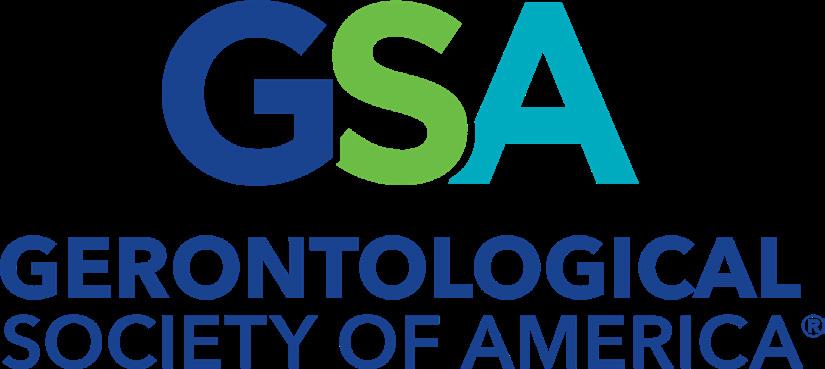Safety First When Considering Anti-Obesity Medications
By Jennifer L. Pettis, MS, RN, CNE Director of Strategic Alliances, Gerontological Society of America
Recent years have brought significant advances in pharmaceutical treatment options to treat obesity. Americans living with obesity or overweight now have access to powerful anti-obesity medications that help control blood glucose and insulin levels and promote feelings of satiety (feeling full). When taken alongside a healthy diet and physical activity, people taking antiobesity medications can experience significant weight loss, and some of the medications also positively impact several other issues. For example, semaglutide has been found to significantly reduce the risk of major adverse cardiac events in adults with obesity or overweight who also have heart disease.
Unfortunately, because of the lack of Medicare and other insurance coverage for Food and Drug Administration- (FDA-) approved anti-obesity medications, many Americans, including older adults, are turning to illicitly manufactured and potentially dangerous copycat products. From advertisements during “the big game”
to social media feeds of many Americans, promotion of these illicitly manufactured anti-obesity medications is seemingly everywhere. According to the Federal Bureau of Investigation (FBI) there are pharmacies, weight loss clinics, and medical spas engaging in compounding practices by misrepresenting compounded weight loss drugs. The FBI notes that these misrepresented drugs can pose safety risks and significant health consequences to patients, such as gastrointestinal disorders, nervous system disorders, cardiac disorders, psychiatric disorders, and death.
You may be asking, “ What exactly are compounded medications? ” According to the FDA, compounding is generally a practice in which a licensed pharmacist, a licensed physician or, in the case of an outsourcing facility, a person under the supervision of a licensed pharmacist, combines, mixes, or alters ingredients of a drug to create a medication tailored to the needs of an individual patient.

The FDA notes that a drug may be compounded for a patient who cannot be treated with an FDA-approved medication, such as a patient who has an allergy to a certain dye and needs a medication to be made without it or an older adult or a child who cannot swallow a tablet or capsule and needs a medicine in liquid form. In such situations, practitioners in hospitals, clinics, and other health care facilities sometimes provide compounded drugs. In these situations, compounding can serve an important patient need. Compounders also may prepare compounded versions of a drug on FDA’s drug shortages list if the compounded drug meets certain conditions detailed in federal law. Because of this stipulation by the FDA, compounding certain anti-obesity medications was legally allowable when those medications were on the FDA’s drug shortage list. This is no longer the case as pharmaceutical companies are manufacturing enough of these medications to meet demand for them. However, illicitly compounded

anti-obesity medications continue to be available to the public.
It is important to know a few things about compounded anti-obesity medications:
• They are not FDA-approved in their compounded form, and the FDA verified the safety, efficacy, or quality of the compounded substance.
• Compounded drugs and generic drugs are not the same. Generic drugs are FDA-approved drugs that meet the therapeutic equivalent to a brand-name drug. This might not be the case for compounded drugs that may have different ingredients than the FDA approved medication.
• Only patients whose needs cannot be met with an existing FDA-approved medication should use compounded medications as unnecessary use of compounded medications can expose patients to serious health risks. For example, if a patient has an allergy to an ingredient in an existing FDAapproved medication, they may benefit from a compounded version of the
• Medications purchased from unregulated and unlicensed sources can expose patients to potentially poor-quality products.
• Often, the active pharmaceutical ingredients for compounded anti-obesity medications arrive from China, Turkey, India, and other foreign sources and, according to the National Association of Attorneys General, can contain contaminants, other unknown
drugs, or dangerously high amounts of active ingredient(s).
It is vitally important that people protect themselves from potentially unsafe illicitly manufactured medications. The FBI recommends the following:
• Avoid suspiciously low prices of weight loss drugs sold by unlicensed healthcare providers.
• Be cautious when purchasing any pharmaceutical drugs online and buy only from licensed pharmacies. You can check whether a pharmacy is licensed through your state board of pharmacy. A link to each state board is available through the FDA at https:// www.fda.gov/drugs/besaferx-yoursource-online-pharmacy-information/locatestate-licensed-online-pharmacy
• Consult with your medical provider before using any pharmaceutical weight loss drugs.
Please spread the word and remember “Safety first when considering anti-obesity medications!”

About the Gerontological Society of America: GSA is the oldest and largest interdisciplinary organization devoted to research, education, and practice in the field of aging. GSA’s principal mission — and that of our 5,500 members — is to promote the study of aging and disseminate information to scientists, decision makers, and the general public.
Founded in 1945, GSA is the driving force behind advancing innovation in aging — both domestically and internationally. Our members come from more than 50 countries.
The Vision of GSA is Meaningful Lives as we Age.
Learn more at www.geron.org
